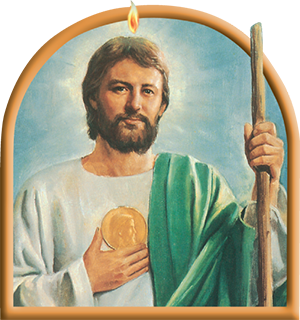Seeds of the future
The initial Bene-dictums sounded great. But where will this new pope take us from here?
IF NOTHING ELSE, THE RECENT PAPAL TRANSITION exhibited for a global audience the richly diverse vitality, the fascinating history, and the exhilarating potential of our worldwide community of faith. Millions converged in St. Peter's Square to remember, pay tribute, and give thanks for Pope John Paul II's life and his many gifts to our church and the world. And the rest of our motley tribe—more than a billion—assembled in our parishes and in front of our TV sets to join in prayers for his soul and pleas for the guidance of the Holy Spirit during this time of transition.
Now a new pope, Benedict XVI, is sitting in Peter's chair. During his first days in office he has reached out to both the church and the world. His choice of a papal name and first few public appearances set a more conciliatory and inclusive tone than many who knew his history at the Congregation for the Doctrine of the Faith (CDF) expected.
In his first Mass it was reassuring to hear Benedict define Christian unity as his top priority. He also expressed his commitment to collegiality, theological dialogue, and a focus on the Eucharist; invited all people of goodwill to cooperate for peace and justice; and spoke directly to young people.
During the homily of his Mass of investiture it was comforting to hear Benedict acknowledge that he wants to follow the example of the Good Shepherd. His "real program of governance," he said, "is not to do my own will, not to pursue my own ideas, but to listen, together with the whole church, to the Word and the will of the Lord."
While these first few steps should not be overinterpreted, they did avoid the divisiveness that many Catholics feared would result from the cardinals' election of the man who had led a crackdown on a wide variety of thinkers and believers among the faithful.
One wonders whether some Catholics are disappointed by this. The New York Times quoted a priest from Oklahoma City in St. Peter's Square when the pope made his first appearance who raved: "He's going to have a German mentality of leadership: Either get on the train or get off the track. He will not put up with rebellious children."
Ouch! It makes you wonder what the Good Shepherd himself would say to that.
Truth be told, some of Ratzinger's statements made during his tenure at the CDF encouraged this kind of polarization. For those of us who did not feel unmitigated joy at the news of his papacy, two things worry us most. First, his tendency to portray as essential elements of our faith certain church policies and teachings about which faithful Catholics can reasonably disagree. Second, his tendency to favor a church that, he thinks, must be smaller to be faithful, and to place outside that narrower church those who may struggle with or question the wisdom of certain church teachings and who strive for church reform.
In the 1996 book-length interview Salt of the Earth (Ignatius Press), Ratzinger proposed a new church, "where Christianity will again be characterized more by the mustard seed, where it will exist in small, seemingly insignificant groups that nonetheless live an intensive struggle against evil." Like the priest in St. Peter's Square, many of Pope Benedict's admirers have interpreted that as a call to show liberals the door.
More than 30 years ago, another german theological brain, the late Jesuit Father Karl Rahner, called such an approach a dangerous "sect or ghetto mentality." Its proponents, he said, were "not troubled at all if restless and questioning people left the church, because to them it means that calm and order can be restored and everything in the church can be the way it was in the good old days."
Rahner said it was the inevitable turmoil and conflict that accompanies change that leads to this temptation "to ‘purify' the church in a movement ‘for pope and church' and similar means of pseudo-orthodoxy, … to set out on a march into the ghetto." Against this, Rahner proposed, "We must dare to become an ‘open church.'"
Toward that end, I for one am happy to honor Pope Benedict's request, "Pray for me, that I may learn to love [the Lord's] flock more and more… each one of you and all of you together. Let us pray for one another, that the Lord will carry us and that we will learn to carry one another."
Amen to that.
Meinrad Scherer-Emunds is the executive editor of U.S. Catholic. This article appeared in the June 2005 (Volume 70, Number 6; page 50) issue of U.S. Catholic.
